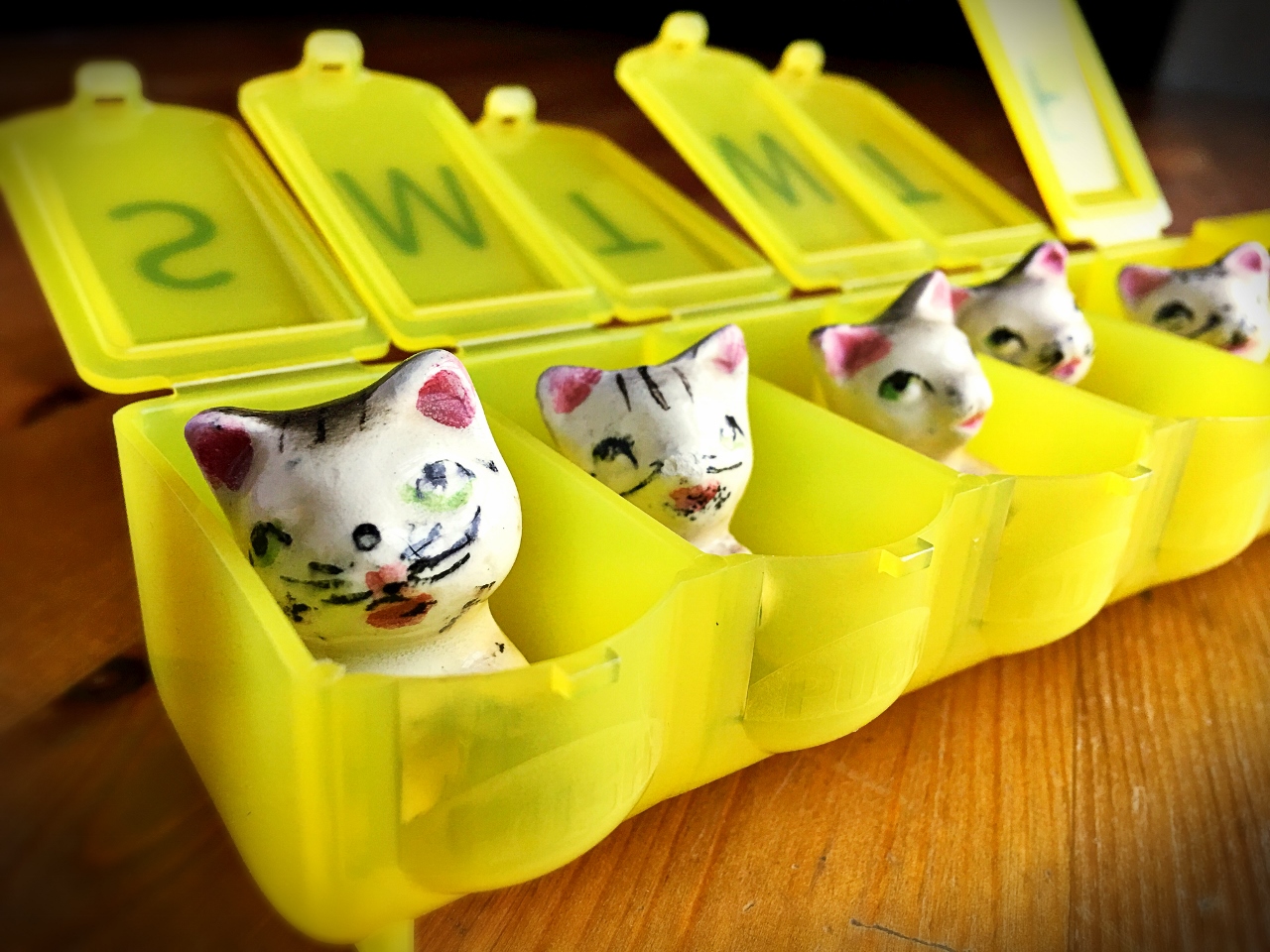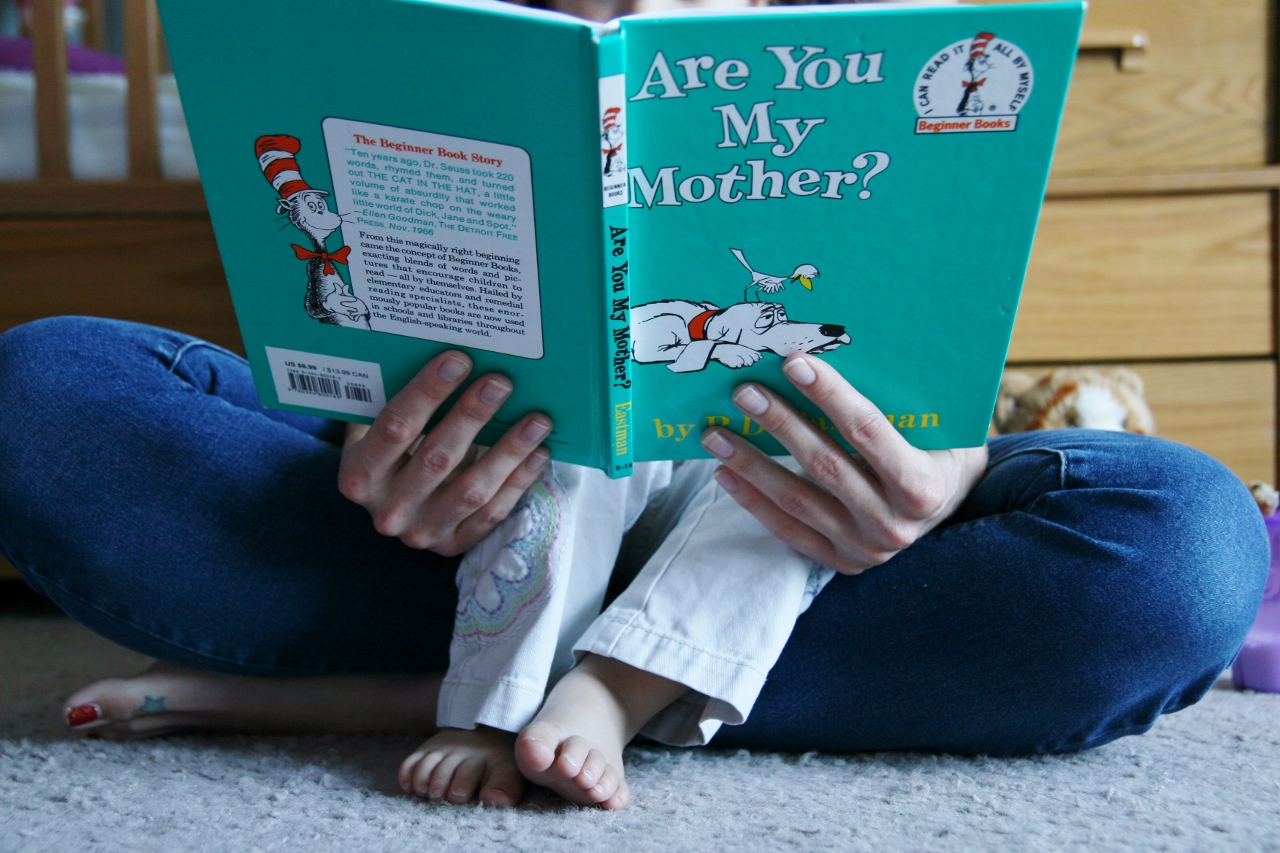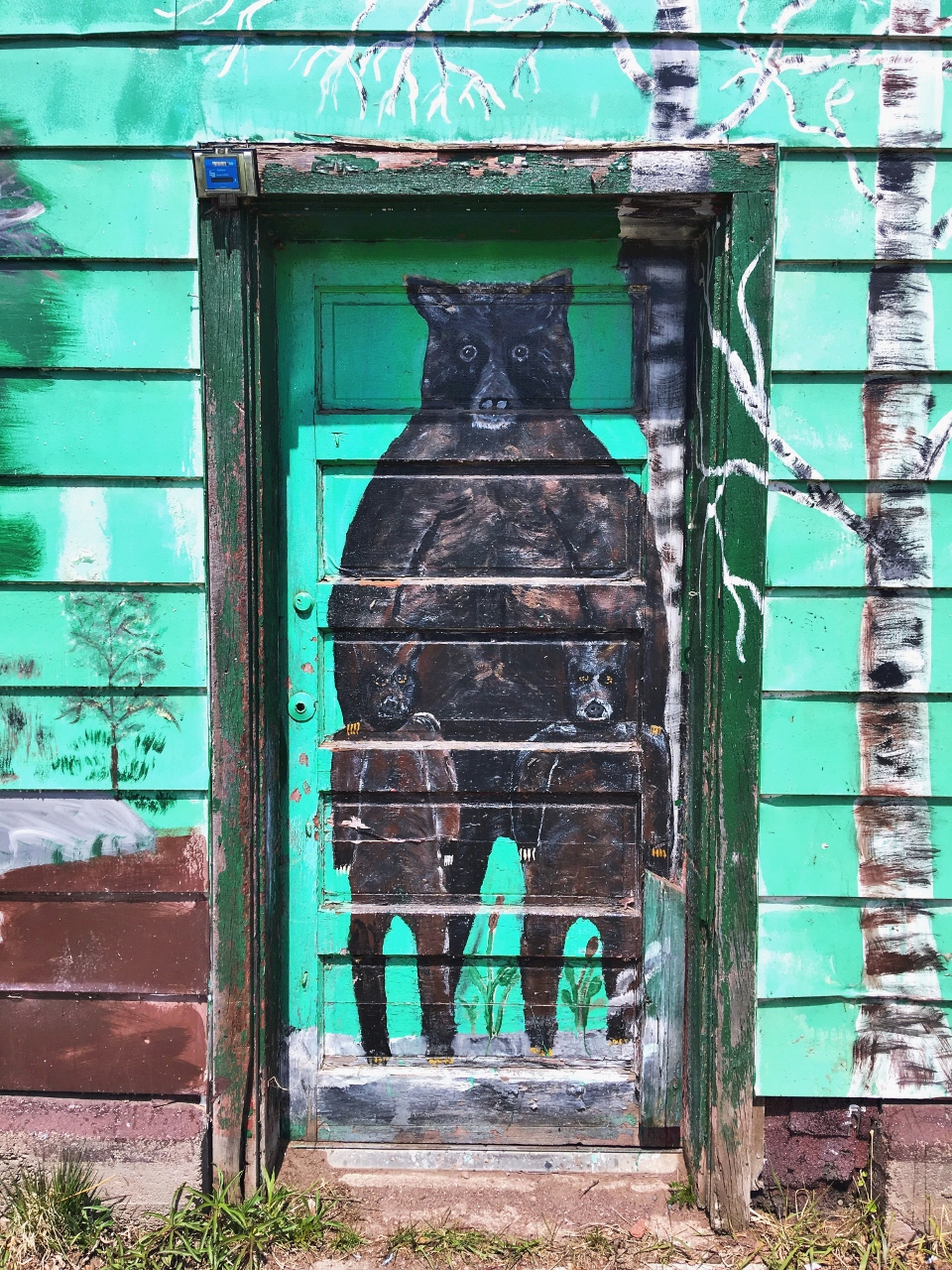
By Terry Barr
I watch her remove the jar of Maxwell House from the top kitchen cabinet. She lets me sniff the stuff inside, the coffee, in the only form I’ll know it for many years. She spoons two helpings into her open dull-green cup, one of a set of six. Except for the colder weeks when they are used for that still rare serving of hot tea, these cups are my grandmother’s exclusive property. When the pan of water is ready, she pours and then stirs in just a bit of sugar. Often her coffee accompanies a buttered and heated slice of yesterday’s pound cake—as if any more butter were needed. More often, the coffee complements her lunch of country vegetables and meat that, when I was a boy, I couldn’t bring myself to try. Not that I try the coffee either; it will be years until, freezing to death at a ball game, I opt for coffee over hot chocolate since there won’t be any hot chocolate on this night at this little league ballpark.
Sometimes your elders are right: coffee does taste bitter. Two sips and I’m done for fifteen more years, until grad school and doctoral pre-lims and the stimulant of champions. My Maxwell House will be “fresh ground” from a can, but my grandmother will have been dead by those same fifteen years. I’ll wonder about the distance between instant and ground, between black and au lait, between us, and our tastes.
It will be another form of coffee, though, that will bring me back to her.
•••
My Carolina Wild Dog, Max, strains at his leash. He’s smelling it now, not the collards I’m slurping but the bacon they’re cooked in. I pull out a meaty morsel and make him sit. We always sat for our supper when I was a boy growing up in Bessemer, Alabama. Unlike me back then, Max has to be asked only once to come to the table. He’ll do anything for bacon and, truly, I understand.
In this moment, coming back from a trip to visit our daughter in Virginia, we’re sitting out front of the Floyd Country Store in Floyd, Virginia, in chairs provided for “wanted loiterers.” My wife nourishes herself with creamy tomato dill soup, a grilled cheese on wheat, and Coke. My pinto platter is not only accompanied by homemade chow chow, and those collards (when the waitress asked “With or without bacon?” I looked at her, at Max, at myself and wondered who’s kidding whom?) but also by a triangular wedge of cornbread, which is a little bitter because they clearly don’t use Rumford Baking Powder.
Max hovers between our chairs because it’s raining now. He might look a bit Lab-ish, but he’s no water-lover. I’m sucking my beans and greens down faster than I want because the once-drizzle is picking up now, compromising the integrity of my lunch. These collards are so fine I don’t need the pepper sauce that I ritually use. Soon the rain lets up, and so I sip my Red Rooster coffee in peace.
Old-time mountain music rains down on me from the Floyd Country Store speakers, making me think of those Saturday afternoons of my childhood, watching The Wilburn Brothers or Porter Wagoner on TV with my Nanny. While I don’t own any music like this, don’t even plan to, when I hear it, I know exactly where I am, and I relax.
Inside the store, where along with pintos and collards you can also order roasted root vegetables—rutabagas, turnips—with gluten-free bread or a cup of Brunswick Stew, I note the blue-dyed hair of one server; the punk cut of another. The man handling sales at the other side of the store sees my Alabama Crimson Tide t-shirt and offers that his grandson is a Tide fan, from Decatur.
“They’re a mighty good team,” he says, and I agree. I tell him how much I’ve enjoyed the food, and while he is gracious, I’m definitely not providing him unheard of news.
Originally, I brought us to Floyd for the coffee, and while I was upset initially that today, and any Monday or Tuesday, Red Rooster Roasters is closed, if they hadn’t been, we might not have wandered, lingered, and found a meal that transfixed me, for when I saw the words “Pinto Bean plate,” my fate was sealed. I had found “home.”
Max feels similarly when we reach the beginning of the big woods. He looks like an old “yeller dog,” a retriever of sorts, but as I said, he’s skittish of water. He yearns for mountain paths; when we take him hiking on Caesar’s Head or Paris Mountain back home, he feels a spirit that can’t be explained, only experienced, which he does as fully and heartily as I attacked those collards. He wants a good trail, and other Carolina Wild Dog owners get this. When he gets the look in his eye, all I can say to him is “It’s okay, boy, I understand.”
It’s what he’d say to me if he could when he sees me eating today.
What he doesn’t know, of course, is the memory that this meal evokes: Saturday lunchtime with my grandmother, Ellen Crowe Terry, her stooped back hunched over her plate. Early on, I didn’t understand what that meat is she’s chewing, or why the smell of those greens appeals to her. I had my home-fried cheeseburger in front of me and wondered how anyone could prefer something else, something almost unnamable.
•••
I would have never heard of Red Rooster Coffee or Floyd had it not been for Yo Cup, a side-street coffee house that opened in my college town back in 2013 and closed this past Christmas. Originally, Yo Cup’s owners offered only frozen yogurt with various fruit and candied toppings, coffee drinks, and homemade cupcakes in both vegan and gluten-free varieties.
My college town, or more accurately the town incorporating the college where I’ve been teaching for the past thirty years, is a former mill village, populated by roughly nine thousand people. The mill closed back in the 1980s, and now there’s not much to do or see there. The town square has its Confederate monument; a train line bisects the middle of Broad Street, the town’s main artery; and while there are one or two lunch/meat and three joints and a Cuban cafe, the main food industry is clearly pizza. There is House of Pizza, Dempsey’s Pizza (formerly Pizza Inn), Pizza Hut Express, Little Caesar’s, Papa John’s, and there used to be Tony’s Pizza, but nine thousand people, including the one thousand students at the college, can consume only so much pepperoni and dough.
At the college, I teach courses in Southern Film, Modern Novel, American Literature, and Creative Nonfiction. When I started in the late eighties, I was told that people in the town didn’t exactly cotton to the professionals at the college. Town and gown, truly. At my initial interview on campus, I spied a downtown movie theater, and my first comment to the group interviewing me was my joy at seeing the old movie house.
“Well, they’re tearing it down next week,” my hosts said with attendant irony.
That told me much, but I still thought I was moving to a college town. Actually, after the interview and a couple of half-hearted searches for housing in the town, I didn’t move there, but chose nearby Greenville. That is, my wife suggested Greenville—it was at least a city that might offer her work. The town, she said, scared her. And I know better than to question her fear. Actually, I understood.
The image of any college town, to me, includes certain features: used or independent bookstores; pubs; homey cafes; alternative or vintage clothing stores; and coffee shops. This little town, though, contained none of these. Actually, there was a place called Robert’s Drive-In that had hamburger plates, and after I ate there once, I reported my discovery to my department chair who promptly informed me, again with all due irony, that Robert’s was a former Klan hangout.
How do you not tell new faculty beforehand of racist history?
I found in the end that I could live without hamburger plates, vintage clothes, and used books, but no coffee?
Our faculty lounge had an old Bunn coffee maker left there decades before by a retired dean. Supplied monthly by a new crate of individualized packets of Folgers ground coffee, complete with powdered and decidedly non-dairy creamer, what we had was not even better than nothing. Eventually, I bought my own coffee maker, brought my whole beans and ground them in my office, and stored half and half in the mini-fridge installed in the lounge.
And though I enjoyed my coffee, I felt like a snob. A snob all alone sipping coffee in his windowless office.
The town now has a McDonald’s and a Waffle House. If I lived there, I could see going to WH late for the experience. Students do that, I hear, or they go to the Sonic Drive-In. I don’t know. It all sounds sad and depressing, a far cry from the Jolly Cholly’s, Dari Delite’s, and Kollege Klubs, in Montevallo, Alabama, the college town of my undergrad years.
So when Yo Cup opened and provided several tables, couches, and piped in alternative sounds from the manager’s iPod, I thought, finally, a place to be.
It was almost hip.
They served lattes, shots in the dark, macchiatos, chai, with soy and almond milk alternatives. The chalkboard listing all the drinks, in flowing, colorful script, even contained my favorite, Café Au Lait. In most small coffee houses I have to instruct the servers how to steam one-third milk to two-thirds dark roast. Yo Cup knew its drinks, and all I said was “Café Au Lait,” and voila, a perfect blend. Just the right amount of froth in a clever design. What killed me, though, was the flavor of the coffee itself.
“What kind of coffee is this?” I asked Courtney, the owner.
“It’s Red Rooster, the Funky Chicken blend,” she said. “My husband and I found the roasting house last summer in Floyd, when we went to Floydfest.”
“Floydfest?”
“Yeah, it’s this great mountain music festival every July. You ought to go.”
Over the months of Yo Cup, I sampled a Bourbon Barrel Blend—definitely hints of the South’s favorite whiskey in the brew—the Sumatra and Farmhouse Blend, and the Old Crow Cuppa Joe.
I love the Old Crow, and I understand now, given its name, the resonant reason for why I would.
•••
My grandmother, Ellen Crowe Terry, led anything but the life of a typical southern woman of her age. At some point either she or her father changed the family surname from “Crow” to “Crowe.” Was this putting on airs, an attempt to distance the family from the common bird of nuisance, or from an almost forgotten tribe of Native Americans? If so, it didn’t work for me—I always saw that black bird when I heard her maiden name—even though I hadn’t seen the spelling change until last week in a family tree my daughter’s husband Taylor is filling in. A Crowe is a Crow is a Crowe again.
Ellen’s family came from northern Alabama, on her father’s side at least: Talladega or nearby Anniston depending upon whether you believe Ancestry.com or my mother. Whatever the town, the Crowes were rural folk, farmers, and from this area they eventually moved to Bessemer, a wide-open mining town to the southwest of Birmingham. In Bessemer, Ellen met a phone man, GC Terry who hailed from Cortland, Alabama. The Terrys were rural folk, too, as I know from family stories and from driving through Cortland once. It’s about as big as Floyd, and as my mother warned, almost every business sign I saw proclaimed that this hardware store, this transmission shop, or this used furniture place was run by a Terry. I could have stopped at any one of them. I should have stopped at least at one of them just to see whom I came from, but I didn’t. A girl in another state, a girl I used to love, beckoned.
My grandmother Ellen—I called her “Nanny”—loved to travel. Unlike my mother, Nanny saw Chicago, San Francisco, and New York, searching for and dealing in antiques.
“She especially loved Chicago,” my mother says, though I don’t remember if I ever heard why.
Before I was born and for the first few years after, my Nanny ran antique stores in Bessemer, one I remember on 19th Street, another not too far away on 9th Avenue, the Super Highway. I remember floating through the various rooms of her shops, all lavishly decorated and independent of each other. Who might live here? I wondered. It was like having another house, though, just as I was admonished in the formal living room of our own house, I was not allowed to touch anything in the shop.
Over the years, Nanny procured our family’s dining room set—mahogany table and six matching chairs—as well as my parents’ Queen Anne bedroom suite. My mother’s house still holds these and many other antiques: vases, side tables, and lamps, all from my grandmother’s wheeling-dealing days.
While those signs of her life were always evident, what was often missing from my mother’s younger days was my grandmother herself.
There’s a photo I found recently of my mother and her father at GC’s retirement dinner in Birmingham. He was wearing a double-breasted suit, tie in a Windsor knot. My mother had on an evening dress and looked so glamorous. No older than seventeen, she was her daddy’s escort at this commemorative occasion, because my grandmother was gone, traveling somewhere, finding new-old goods.
I look at the photo and wonder both about what I see and what I can’t.
•••
In her waning years, my Nanny turned her bedroom in the house I grew up in—the house she had been living in since the 1920s—into an artist’s studio. She painted in oils. Still-life of fruit. Old country barns. Flower arrangements. Not really primitive but not polished either. I can see her, perched at the edge of her rocking chair, dabbing into her palette, scattered tubes of oil paint around her, her easel holding the picture of the day, for Nanny finished one picture per day in the summers and winters of the last years of her life. These paintings would lie under her bed, in all corners of her room, piled at her feet. Many were framed; many more stacked on top of each other.
She died in the summer of ’71, and I have no idea what happened to all those works of her mind. My mother kept a few, but the rest? It would be nice to imagine them on the walls of homes near and far, or maybe in one of those roadside antique shops in the country somewhere, near Floyd, where they appreciate the gifts of random and unknown stars.
I wish I had even one of those gifts. I can’t even tell you anymore what one of them looked like, though I can still see the scene of their creation, the spattered paint on the carpet where she worked, near her slippered feet. She always painted in nightgown, robe, and those heel-less slippers. A woman of leisure, herself a subject that no one could ever capture.
For a woman this independent and self-sufficient, even aloof—though she kissed me every night and called me her “darlin’”—you’d think her taste in food would run toward lobster newburg, filet mignon, or baked Alaska. French cuisine befitting one who travelled to large and exotic cities. Not that she wouldn’t eat any of these dishes if served, or the creole pork chops, country captain chicken, and Italian spaghetti—whose recipe my mother got from our second generation Italian neighbors down the street—my mother prepared every night.
But left to her own devices, Nanny preferred simpler fare, rural foods like hominy, baked sweet potatoes, turnip or collard greens, corn muffins, cayenne and Tabasco peppers, and fresh chow chow she’d make herself. Once, she let me try a green cayenne. She cut it open and told me to just put my tongue in its center, where that white meaty layer lurked. I learned quickly that water won’t stifle that sort of heat.
“Try milk,” Nanny advised.
Seemingly more than anything else, though, she loved backbone meat.
When I envision her at our kitchen table, sitting at the end closest to the electric stove, hunched slightly over her plate of country goodness, it’s always a noon winter Saturday. Early on in these memories, my mother might have fixed me a cheeseburger—still to this day the best sandwich I’ve ever had—fried and then with the cheese melted on top in the oven, ketchup and mustard only.
At some point on one of these Saturdays, though, I got up the gumption to try the backbone meat, maybe with some corn or fried okra. It was another cold day, the sun still shining through our multi-paneled breakfast room windows; the bare cherry tree beyond telling me the time of that season.
I discovered then that backbone meat was good, that it was succulent with brown gravy. Then I tried some short ribs, a delicacy now that farm-to-table restaurants in the South charge twenty-five to thirty-five dollars a plate to taste. I haven’t seen backbone meat hit these menus yet, and just last week I asked my mother if you could still buy it anywhere.
“Oh yeah,” she said. “I saw some at Publix just the other day.”
“When you come up in a few weeks, we’re gonna have to get some so you can show me how to cook it.”
I’m almost sixty-one years old and still learning life lessons. I can fix the short ribs, braise collards, fry corn, slow-cook pintos and any other dried or fresh bean—olive oil, beef bouillon flakes, salt and/or sugar, and maybe some Cajun spices—fry green tomatoes, and bake numerous varieties of corn bread.
I can make all day meals, and though I try my hand at more sophisticated dishes—boeuf bourguignon, shrimp creole, turkey with oyster dressing, sweet potato casserole, even borsht—I feel proudest when I’ve shucked and cut and creamed my white corn; when I’ve turned slimy okra into salty, slightly-floured fried popcorn; when I’ve brined chicken in salt water and fried it to gluten-free-floured perfection. When my collards, cooked with bacon, melt in your mouth. When my lima beans or lady peas make you want to shout or cry and not worry about the gas to come. When you slice open my cornbread and melt a pat of butter inside and want to stick your face in it, too.
I’d wanted to take this Floyd route many times before, but time and distance held me back. Something kept calling to me, though, and now I see that it wasn’t just a place I had heard about. It was a link to my past. A memory of food and love that I was longing to taste again. And to share.
•••
TERRY BARR is the author of Don’t Date Baptists and Other Warnings from My Alabama Mother, published by Third Lung Press. His work has appeared in Vol 1 Brooklyn, Eclectica, Left Hooks, Wraparound South, The Bitter Southerner, and, of course, Full Grown People. He blogs for The Writing Cooperative at medium.com, and can also be found on terrybarr.com. He eats and lives with Nilly and Max and Morgan in Greenville, SC.

 Follow
Follow







